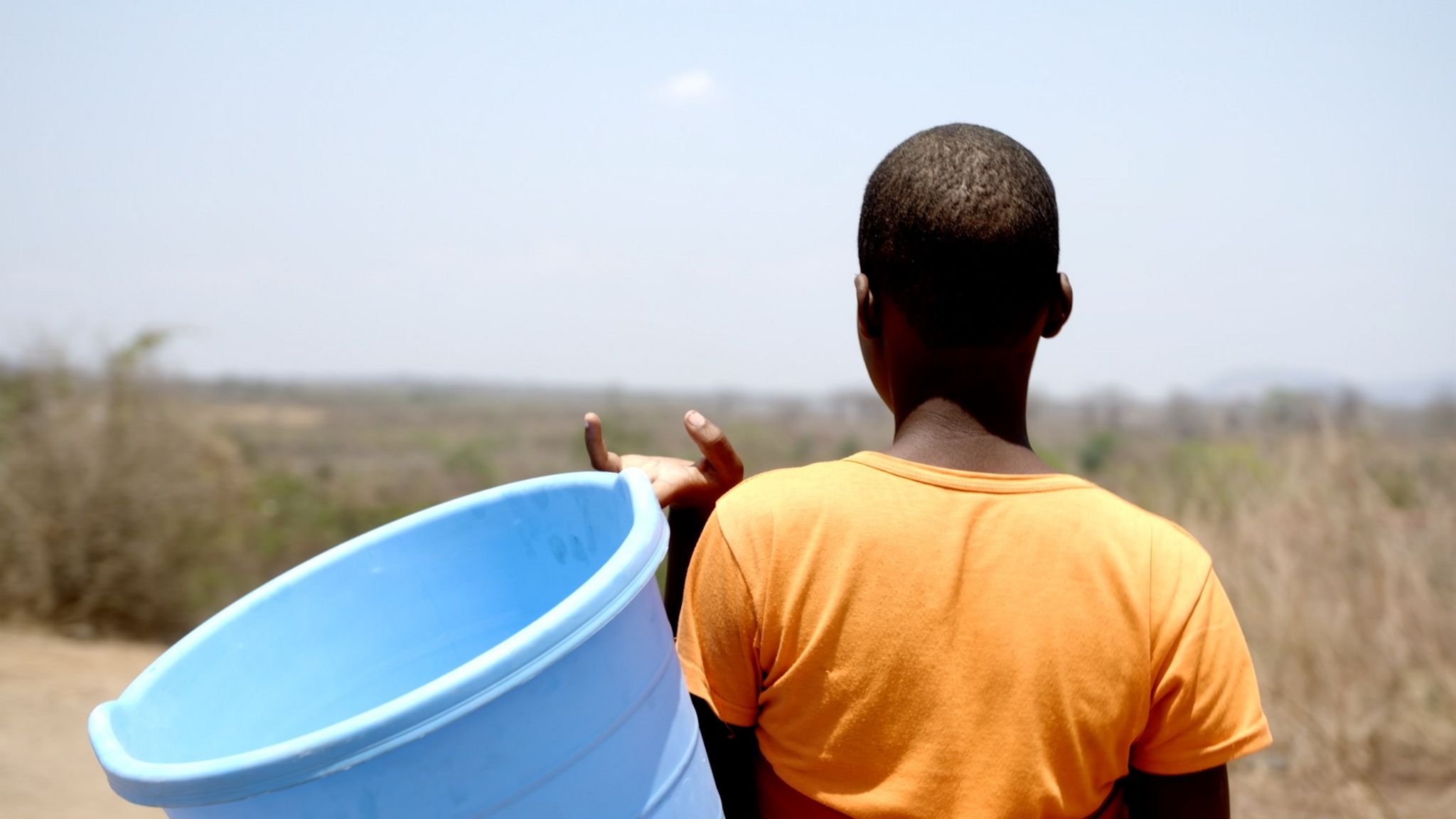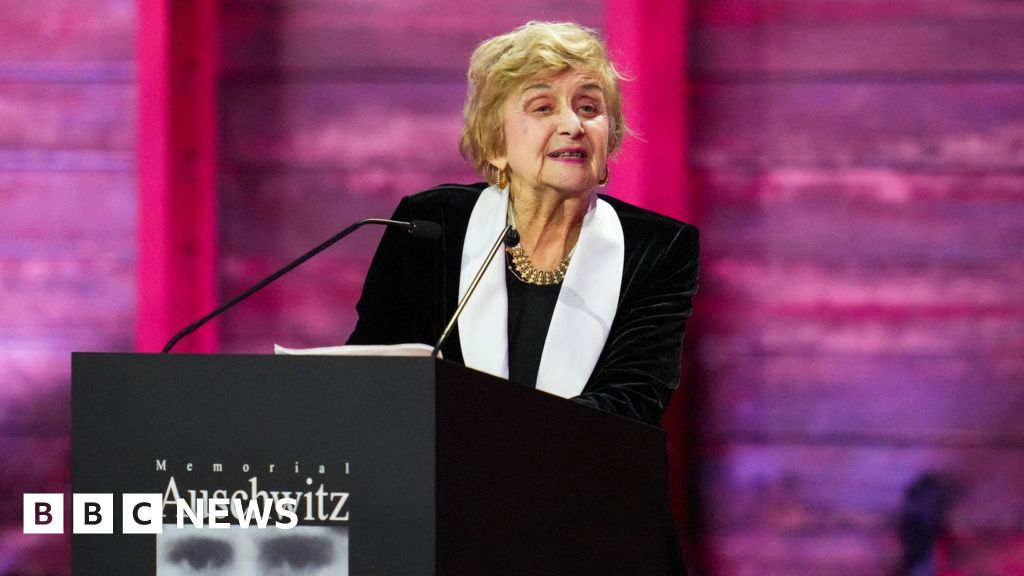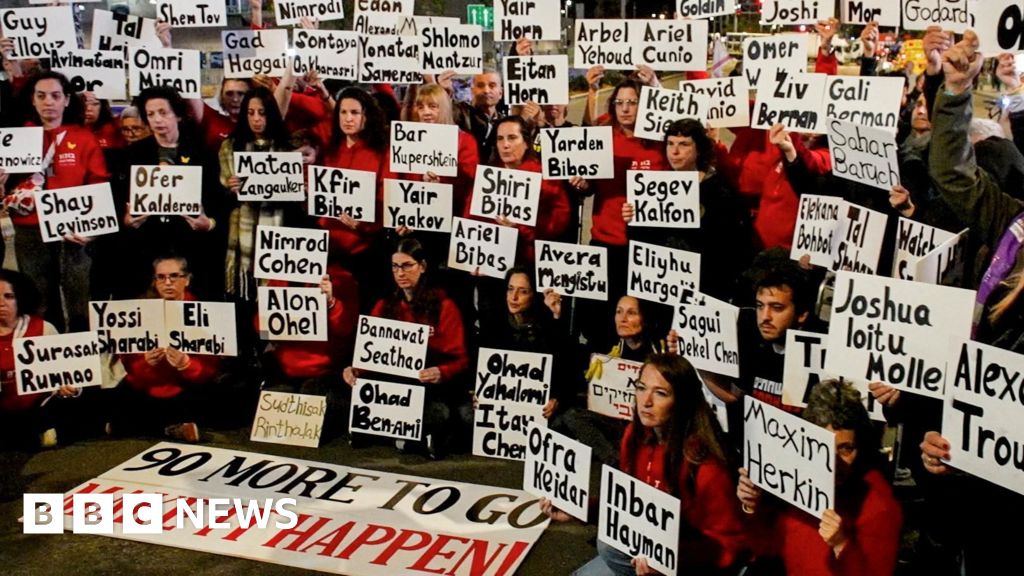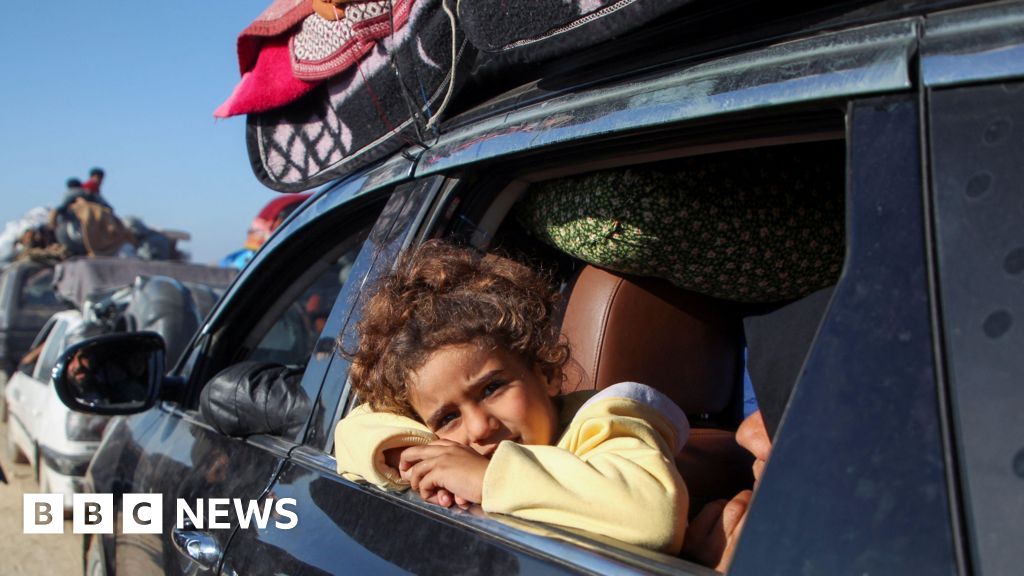ARTICLE AD BOX
 Image source, Yousef Eldin / BBC
Image source, Yousef Eldin / BBC
By Megha Mohan and Yousef Eldin
BBC 100 Women
It is estimated that one in five girls across the world is married by the age of 18. Even countries that have laws against child marriage sometimes fail to enforce them. But in Malawi some are seeing the first signs of change.
The third time we visited Tamara we were told she had left for the nearby fields early in the morning, to till the soil.
At nine months pregnant, there was no rest for the 13-year-old.
Tamara (not her real name) had been sleeping on the floor of her aunt's small hut for several months after her husband, a man in his 20s, had run away.
He had heard that social services were coming to rescue Tamara from their illegal marriage and took off before they arrived, leaving her to walk to her aunt's village.
A lot has changed in Tamara's life in the past few years. Born into a rural farming community in southern Malawi's Neno district, her family lived below the Malawian government's poverty line, like 65% of others in the region. The war in Ukraine, a direct trade ally to Malawi, added pressure - halting wheat and fertiliser supplies and pushing up prices.
When Tamara's parents fell ill and died, in quick succession, their only child was taken in by her grandmother.
But after a month, when Tamara returned from school one day, her grandmother had some news.
"She told me I had to get married," Tamara says. "She had already received money from a man."
A man whom Tamara had never met had paid 15,000 Malawian Kwacha for her - around $9, or £7.
Tamara's grandmother had already spent the money on maize for the family and the man was now impatient. He wanted the girl he had paid for to leave school and live with him.
Child marriage has been illegal in Malawi since 2017, but it has long been culturally acceptable in the country, and still continues in rural communities like Tamara's, where about 85% of Malawi's population live. More than 40% of girls in the country are married under the age of 18, according to the NGO Girls Not Brides.
"Life was difficult because the man was older," Tamara says. "He used to physically abuse me by biting me every time I did something wrong."
She lived with him for three months, until someone alerted social services. Then, as arrangements were being made for Tamara to return to school, she noticed something. She'd missed a couple of periods.
Tamara was 12 years old and expecting a baby.
Almost 100km (62 miles) away from Tamara's aunt's hut, a short drive from the border of Mozambique, a small bright green building blares out Malawian pop music. It's the office of Radio Mzati, a local radio station.
A group of glamorous young women in their 20s are gathered in a radio studio, adjusting their microphones and laughing as they get ready to go on air.
"Hello! Hello! Welcome to another edition of Ticheze Atsikana," booms host Chikondi Kuphata, "a programme that stands as a platform for us beautiful girls to discuss issues affecting us!"
Kuphata and co-host Lucy Morris switch between English and Chichewa - the programme's name means "let's chat" in Chichewa.
It's a weekly show, sponsored by AGE Africa, an NGO that supports rural and vulnerable girls to stay in education, and it reaches more than four million listeners across Malawi. The majority of the audience are women in rural communities like Tamara's.
Yousef Eldin / BBC
When girls have an education and they know their rights, they know they can get help
Today's subject is child marriage.
"A major reason here is poverty," says Morris. "Because most of the families we come from are poor, our parents are not able to look after their children, so the best solution is to send a girl into a marriage.
"Girls marry men much older than them who can provide for them."
The women encourage their listeners to send comments via WhatsApp, before breaking for a song, called Come Back. Its lyrics contain a clear message:
"You now need school for everything!
"It's better you go back to school!
"Early marriage is not good!"
"When girls have an education and they know their rights, they know they can get help to stop child marriage. That's part of our mission, to get girls talking, to share their stories and know that there is another way," Morris says.
Her village, Gulumba, in the foothills of Mount Mulanje, has a women-only listening club for Ticheze Atsikan.
Another fan of the show, although he's not invited to the listening group, is local chief Benson Kwelani. He says he encourages girls to stay in school, and will not give his blessing to a marriage if the girl is under 18.
Married as children
- About 650 million women alive today were married before their 18th birthday according to the UN children's fund, Unicef
- South Asia is home to the largest number of child brides with more than 40% of the global total, followed by sub-Saharan Africa with 18%
- Worldwide, about 21% of girls are married in childhood, according to aid organisation World Vision
- Child marriage rates have declined in Asia and Africa over the past decade, but in Latin America and the Caribbean there has been no progress for 25 years, according to NGO Girls Not Brides
Two weeks ago, after Michelle Obama, Amal Clooney and Melinda French Gates visited Malawi, President Lazarus Chakwera announced further funding for the national strategy to end child marriage.
The three influential philanthropists are working in the country, supporting local organisations fighting against child marriage.
Obama's Girls Opportunity Alliance, for example, is supporting AGE Africa, while Clooney's Waging Justice for Women initiative supports the Women Lawyers Association of Malawi to inform rural girls of their legal rights. French Gates funds projects that improve healthcare for women, including girls who give birth in their early teens.
It is still unusual for social services to get involved in cases of child marriage, NGOs say, but attitudes appear to be changing among some local leaders.
After a drive by the UN Population Fund in 2020, more than 100 of Malawi's traditional chiefs - about a quarter of the total - have promised to fight traditional marriage in their communities. Yet they may be powerless if families give away their girls to much older men.
Two chiefs in Neno district, where Tamara lives, tell us they could not be sure that child marriages were not happening secretly in their communities.
"Some parents do approach us, but we discourage and refuse those marriages," says John Juwa, head of a community of more than 2,000 people.
"Sometimes parents insist that their child is ready for marriage, but we do ask for their health passport book to confirm their age."
George Mphonda, chief of more than 1,000 people, says: "We are not saying that child marriage is not happening but we are saying if it is happening, then they are kept in secret from us."
But whose responsibility is it to stop secret child marriages?
After a long pause Juwa says: "It is our responsibility as chiefs, with the support of the family."
Tamara has given birth to a healthy baby boy. A small Malawian NGO based in the city of Blantyre, called People Serving Girls At Risk, paid for a man on a bicycle to pedal her to the local health clinic when she went into labour. They're also checking in regularly with her and her aunt.
Tamara's labour was thankfully straightforward. Complications from pregnancy and childbirth are the leading cause of death in young women and adolescents according to the WHO, so people had been concerned for her.
Image source, Yousef Eldin / BBC
Image caption,Tamara's hope for Prince is that he will be able to finish school
"Tamara is back home and doing well with her young son, her family are very happy about his arrival," says Caleb Ng'ombo, executive director at People Serving Girls At Risk.
"She has the support of the community and her aunt, but the real work starts now. It would be better for her to return to school but she also needs to support her child."
Tamara tells the BBC her big hope for her son, Prince, is that he will be able to finish school.
Tamara's aunt owns a fruit and vegetable stall which brings in less than $50 (£39) a month. It's a few steps away from their hut. Tamara helps out when she can, and she gets to see her friends.
At the stall, a number of young girls come to collect provisions for their family.
The last time we visit, at least two pregnant teenage girls from the village - with arms full of vegetables - say hi to Tamara before heading back home.
Watch the documentary Twelve Million Girls on BBC News on 9 and 10 December - click here for transmission times.
BBC 100 Women names 100 inspiring and influential women around the world every year. Follow BBC 100 Women on Instagram and Facebook. Join the conversation using #BBC100Women.

 1 year ago
19
1 year ago
19








 English (US) ·
English (US) ·